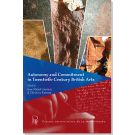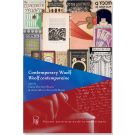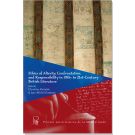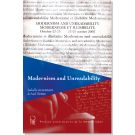Ethics of Alterity, Confrontation and Responsibility...
...in 19th- to 21st-Century British Arts
Various art forms inscribe, program or perform the preference of relationship. In so doing, they put otherness high on their aesthetic agenda by caring about the cultural other, the other of gender, race, class or history...
Various art forms inscribe, program or perform the preference of relationship. In so doing, they put otherness high on their aesthetic agenda by caring about the cultural other, the other of gender, race, class or history. Such art forms from different periods promote a mode of sensibility to the other, whether the foreign or the invisible, or both, in their various manifestations. Sensibility to otherness is envisaged through the means of strident or humble art-forms and aesthetic choices, from the overtly experimental, to subdued adaptation. In confronting and welcoming the other art object, the other culture, or the othered citizen, art objects to the tyranny of the same and promotes such values as attentiveness, responsiveness and responsibility to forms of otherness, i.e. to the ways in which art cares about, or even takes care of the other. This implies the practice of an ethic of alterity (as distinct from the formulation of general rules) that is accountable for making the spectator or listener pay attention to social, economic and cultural invisibilities. Such an ethic of alterity joins hands with the political and may help chart the evolution of the objects and forms of engagement from the Victorian period to the present.
| Year of publication | 2015 |
|---|---|
| Author | Jean-Michel Ganteau, Christine Reynier |
| Format | 16 x 24 |
| ISBN | 978-2-36781-176-5 |
| ISSN | 2269-4153 |
| Number of pages | 286 |
| Editor | Presses universitaires de la Méditerranée – PULM |
| Language | English |
| Type of book | Paperback, perfect binding |
| Date of availability | Dec 7, 2015 |
| 8 sens stock quantity | 8 |
| Weight | 0.620000 |
| Subtitle | ...in 19th- to 21st-Century British Arts |
Also in collection








